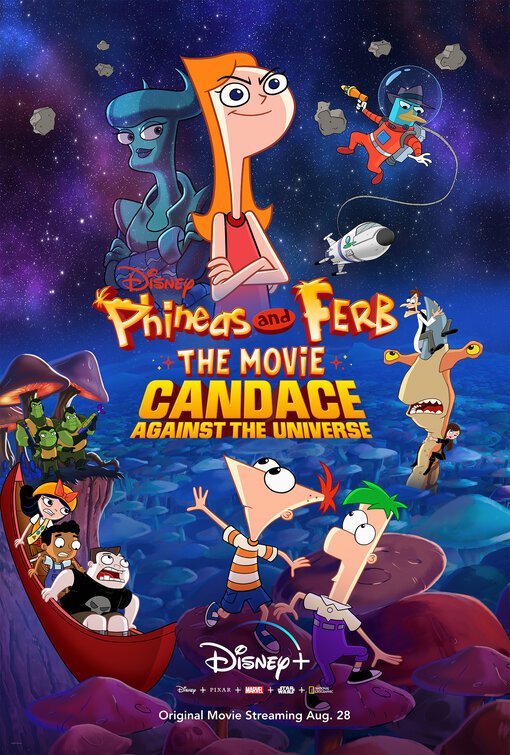“Problems in the Promised Land”

| None | Light | Moderate | Heavy | |
|---|---|---|---|---|
| Language | ||||
| Violence | ||||
| Sex | ||||
| Nudity |
What You Need To Know:
SPRINGSTEEN: DELIVER ME FROM NOWHERE is a movie about artistic integrity. It’s an always fascinating tribute movie with several strong and striking dramatic and musical moments. Jeremy Allen White does a good job playing Bruce Springsteen. However, the movie leaves some open questions. For example, it lacks sufficient details about the subject matter of the songs on Bruce’s NEBRASKA album. Also, it has a mixed pagan worldview with a Romantic view of art and a humanist view of treating psychological problems. SPRINGSTEEN: DELIVER ME FROM NOWHERE also has some strong gratuitous foul language and a partially depicted bedroom scene. So, MOVIEGUIDE® advises extreme caution.
Content:
Mixed pagan worldview with a strong Romantic view of art and personal expression, a humanist view of treating psychological problems, and some moral elements about integrity, helping other people and treating other people right;
Seven obscenities (including two “f” words), one strong profanity mentioning the name of Jesus, two GD profanities, and two light profanities;
Drunken father hits young son when father encourages son to do some boxing (viewers can’t actually see the blow), son wielding a baseball bat hits father in the back as father’s arguing with the boy’s mother, but father doesn’t strike back but grabs the bat and tells the boy that’s right you should always protect and defend your mother, and title character gets angry and hits his empty passenger seat and then drives his car fast, and the car spins out of control on a rural road but doesn’t crash;
Partially depicted fornication in a bedroom scene between the title character and a fictional woman meant to represent a composite picture of his love life, plus and some passionate kissing between them;
Upper male nudity in a few scenes, including after the aforementioned bedroom scene;
Alcohol use and title character’s father comes home drunk in two or so scenes when title character was young and argues with boy’s mother;
Smoking but no drugs and mother tells 36-year-old son that his father’s stopped taking his meds (it’s not mentioned what problem the father has or what kind of meds he’s taking, but biographical reports state that both the title character and his late father suffered from bouts of depression); and,
Eight-year-old boy hears his parents arguing heatedly in two or more scenes.
More Detail:
The movie opens with Springsteen coming off his tour for his popular double album, THE RIVER, in September 1981. Bruce takes a break by retreating to his rural lakeside home near Asbury Park, New Jersey, where the rockstar honed his craft at a local music venue, The Stone Pony. As he takes up residence in his lakeside home, Bruce is haunted by his complicated relationship with his father, Douglas, who had an alcohol problem and was abusive toward Bruce and his mother when Bruce was younger. For some unclear reason, the movie focuses on the year 1957 but makes no reference to the impact Elvis Presley’s appearances on the ED SULLIVAN SHOW in 1956 and 1957 had on Bruce.
Also, Bruce is concerned that his public persona as an extremely popular rock star is starting to overtake his private life and the working class background that’s become such a big part of his music. At the same time, he becomes aware of the acclaimed 1973 Terence Malick movie BADLANDS, starring Martin Sheen and Sissy Spacek, which is based on an eight-day killing spree in 1958 by a 19-year-old garbage man, Charles Starkweather, and his 14-year-old girlfriend, Caril Ann Fugate. The movie shows Bruce researching the Starkweather case which ended with Starkweather’s execution and Caril getting a life sentence.
Bruce begins writing a song about the remorseless Starkweather talking to the judge sentencing him to death. He starts writing a series of songs about murderers, mobsters, fathers, families, two-bit criminals, his childhood, and people facing sad situations. He asks his guitar technician, Mike Batlan, to get him some recording equipment and microphones to record the songs in his bedroom, with the intent of recording the songs later with his E Street Band. Bruce later decides that 10 recordings of the 17 songs recorded will be part of an acoustic album titled NEBRASKA, released with no fanfare, and the remaining songs will be part of a new, more traditional studio album with the whole band, titled BORN IN THE USA. Though the second album also tells some melancholy stories, most of the songs have more raucous melodies and beats.
While Bruce is recording the songs in his bedroom, he starts seeing a pretty blonde named Faye, the younger sister of a friend he knew in high school. Faye has a young daughter, Haley, from a previous relationship. Bruce, Faye and Haley share some happy times. However, as the time to produce the 17 songs on an album in the New York studio consumes more of Bruce’s time, his relationship with Faye suffers, and he stops seeing her.
At the same time, Bruce starts having a mental, emotional breakdown, brought on by his recollections of his imperfect relationship with his father and by his concerns over what direction his musical career should take. Bruce’s growing realization that his band is not the best venue for all of the 17 songs he’s recorded in his bedroom doesn’t help.
SPRINGSTEEN: DELIVER ME FROM NWHERE is a movie about artistic integrity. As the movie tells it, Springsteen decides to put 10 of the 17 songs recorded in his bedroom on an acoustic album titled NEBRASKA. However, his manager and CBS Records are skeptical about the viability of such an album, especially after Bruce and his band are coming off their most successful tour ever. Bruce is adamant, though. Making matters worse, he refuses to have his photograph appear on the album cover or even promote the album. Thus, NEBRASKA will succeed or fail by the strength of its songs alone.
DELIVER ME FROM NOWHERE tells this story in a dramatic way, with a few musical samples of Springsteen’s songs. However, except for the first song on the NEBRASKA album, the song about the killer Charles Starkweather, the movie doesn’t reveal many details about the songs on the album. So, viewers are kind of left in the dark about the songs, especially their subject matter.
Also, Bruce’s relationship with the woman in the movie doesn’t have a resolution, because she’s not a real-life person. In reality, Bruce went on to marry twice, once to an actress for five years, and, second, to a female singer, with whom he’s had three children, born between 1990 and 1994.
In addition, DELIVER ME FROM NOWHERE doesn’t mention the nature of Bruce’s emotional crisis until after the movie, before the end credits. In a written epilogue, it says Bruce has been suffering from depression since he was a child. Reportedly, his father also suffered from depression. Unlike his father, however, Bruce has never had an alcohol problem and has a strict policy of no drugs during tours or recording sessions.
As a movie, SPRINGSTEEN: DELIVER ME FROM NOWHERE is always fascinating and engaging. Jeremy Allen White, the star of Hulu’ acclaimed series THE BEAR, does a good job playing “The Boss,” Springsteen’s nickname, in the dramatic, romantic and musical scenes.
However, as noted above, the movie is light on details about the songs on the NEBRASKA album, the actual nature of what’s ailing Bruce psychologically and what happened with Bruce’s love life after he released NEBRASKA. The movie does show, though, that Bruce starts seeing a therapist on the recommendation of his manager. It doesn’t say what kind of therapist, however. Bruce was raised a Catholic, though, and has admitted that his Catholic upbringing has influenced his songwriting. His songs have a strong sense of the darkness of sin. One of his best songs, “Promised Land,” ends with the repeated refrain, “And I believe in a promised land.”
SPRINGSTEEN: DELIVER ME FROM NOWHERE has a mixed pagan worldview. Its primary theme of artistic integrity has a strong Romantic view of art as something that rests on personal expression rather than transcendent values. By resorting to a personal therapist to treat his depression, Bruce employs a humanist solution rather than a spiritual or moral solution. DELIVER ME FROM NOWHERE also has some gratuitous foul language and a partially depicted bedroom scene. So, MOVIEGUIDE® advises extreme caution.


 - Content:
- Content: 

